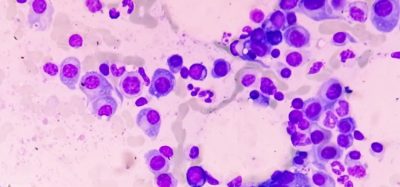Novel vaccination regimen shown to be effective in preventing malaria
Posted: 6 May 2021 | Hannah Balfour (European Pharmaceutical Review) | No comments yet
A three-dose regimen of Plasmodium falciparum sporozoites under chemoprophylaxis (PfSPZ-CVac) was shown to be safe, well tolerated and highly effective in a Phase II trial.


Researchers have shown that a new, condensed immunisation with Plasmodium falciparum (Pf) sporozoites under chemoprophylaxis (PfSPZ-CVac) regimen is highly effective and immunogenic, as well as safe and well tolerated.
Sanaria’s PfSPZ-CVac is a live vaccine consisting of Pf malaria parasites in the sporozoite phase of life and is administered at the same time as patients receive an antimalarial drug. The sporozoites quickly enter the liver after the injection, where they develop and multiply for 6 days, and then emerge into the blood. The drugs kill the parasites as soon as they emerge from the liver and thus, prime the immune system against many parasitic proteins, leaving the individual’s immune system highly effective at killing malaria parasites in the liver, preventing infection and disease.
While immunisation with PfSPZ-CVac is the most efficacious approach to malaria vaccination, so far, its implementation has been hampered by the complex chemoprophylaxis regimen, with patients requiring 13 visits to achieve immunisation, and missing evidence for efficacy against heterologous infection.
In a new double-blinded, randomised, placebo-controlled study, investigators evaluated a condensed PfSPZ-CVac immunisation regimen in malaria-naive volunteers. The new regimen only requires three vaccinations, instead of 13.
The study enrolled 18 patients, 13 to receive direct venous inoculation of 1.1 × 105 aseptic, purified, cryo-preserved PfSPZ (PfSPZ Challenge) of the PfNF54 strain and five to receive placebo (saline), both with simultaneous oral administration of 10 mg/kg chloroquine base. The primary endpoints of the trial were safety and vaccine efficacy tested by controlled human malaria infection (CHMI) using the highly divergent, heterologous strain Pf7G8 found in South America.
Twelve weeks following immunisation, 10 participants in the vaccine group were protected against heterologous CHMI, while all participants receiving placebo develop parasitaemia, thus the risk difference was 77 percent. Immunisation was shown to induce 18-fold higher anti-Pf circumsporozoite protein (PfCSP) antibody levels in protected than in unprotected vaccinees, with such antibodies shown to be strongly associated with protection by protein microarray assessment.
PfSPZ-CVac was found to be well tolerated, with self-limiting grade 1–2 headaches, pyrexia and fatigue that diminish with each vaccination. As a result, the investigators concluded that their condensed regimen is highly efficacious, safe, well tolerated and highly immunogenic.
“With this study, we have reached a new important milestone in the development of an effective malaria vaccine. With only three immunisations over four weeks, we achieved very good protection against malaria,” explained Professor Peter Kremsner, who has helped to advance the malaria research field at the German Center for Infection Research (DZIF) since its inception.
DZIF co-ordinates translational infection research in Germany and provides strategic direction. It has 35 research institutions working together against the global threat of infectious diseases, the Tübingen site co-ordinates the research area Malaria.
The study was published in Nature Communications.
Related topics
Biologics, Clinical Development, Clinical Trials, Drug Development, Drug Safety, Immunisation, Research & Development (R&D), Vaccine Technology, Vaccines, Viruses









